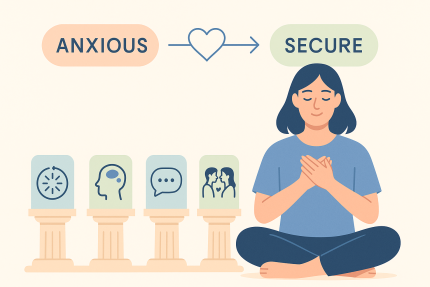The Ultimate Guide to Finding and Thriving in Remote Jobs
- 19 August 2022

In the past few years, the job market has been changing at a fast pace, and the COVID-19 pandemic has accelerated this trend. More and more people are now working remotely, whether it's by choice or necessity. Remote jobs offer many benefits, such as flexibility, no commute, and the possibility to work from anywhere in the world. However, finding and thriving in a remote job can be challenging. In this article, we will provide you with the ultimate guide to finding and thriving in remote jobs.
What is remote job?
First, let's define what we mean by remote jobs. A remote job is a position where the employee is not required to work in a physical office. Instead, they can work from anywhere with an internet connection, whether it's from home, a coffee shop, or a beach. Remote jobs can be full-time or part-time, and they can be in any field, from programming to customer service.
Skills and Interests
Now that we've defined what a remote job is let's move on to the first step in finding one: identifying your skills and interests. To succeed in a remote job, you need to have the right skills and be interested in the field you're working in. This means taking the time to assess your strengths and weaknesses, as well as your interests and values. You can use online tools, such as Skillshare or Udemy, to learn new skills, and explore your interests. Once you have a clear understanding of your skills and interests, you can start looking for remote jobs that match your profile.
The second step is to search for remote job opportunities. There are many websites and platforms that specialize in remote job listings, such as Remote.co, FlexJobs, and We Work Remotely. You can also search for remote jobs on general job search websites such as Indeed or LinkedIn. When searching for remote jobs, be sure to read the job description carefully and pay attention to the requirements, such as time zones and language skills. You should also research the company to make sure it's legitimate and a good fit for you.
The third step is to tailor your resume and cover letter to the remote job you're applying for. A remote job requires different skills and experiences than a traditional office job, so make sure to highlight your remote work experience, your ability to work independently, and your communication skills. You should also emphasize your tech skills, such as experience with collaboration tools like Slack or Trello. Finally, be sure to explain why you're interested in a remote job and how you can contribute to the company.
Once you've applied for a remote job, the fourth step is to prepare for the interview. A remote job interview may be conducted over the phone, video conferencing, or even through an online test. Make sure you're comfortable with the technology being used, and that you have a quiet, distraction-free environment to conduct the interview. You should also prepare to answer questions about your ability to work independently, your communication skills, and your experience working remotely. Be sure to ask questions about the company culture, the remote work policy, and the team structure.
Finally, once you've landed a remote job, the fifth step is to thrive in your new role. Working remotely requires discipline, focus, and good communication skills. Make sure to set up a dedicated workspace, establish a routine, and take breaks to avoid burnout. You should also communicate regularly with your team, using video conferencing, instant messaging, or email. Finally, be proactive in seeking feedback and improving your skills, whether it's through online courses, mentorship, or attending virtual conferences.
One of the most critical skills for a remote job is time management. When working remotely, there are no set hours, and it's easy to get distracted by household chores or personal obligations. To be successful in a remote job, you need to be able to manage your time effectively, prioritize your tasks, and set clear deadlines for yourself.
Skills needed for a remote job
Another critical skill for a remote job is communication. When working remotely, you'll be communicating with your team and clients primarily through digital means, such as email, chat, or video conferencing. Therefore, it's essential to be able to express yourself clearly and concisely, as well as being an active listener. Being able to communicate effectively will help you to establish strong relationships with your team and clients and avoid misunderstandings.
Flexibility and adaptability are also essential skills for a remote job. Remote work is constantly evolving, and you need to be able to adapt to new technologies and ways of working. You also need to be flexible in your schedule and work style to accommodate different time zones, client needs, and project requirements.
Finally, self-motivation and discipline are essential skills for remote work. When working remotely, there is no boss or supervisor to keep you on track, and you need to be able to motivate yourself to complete your work on time. You also need to be disciplined enough to avoid distractions and stay focused on your work.
In summary, remote jobs offer many benefits, but they also require specific skills and preparation. By identifying your skills and interests, searching for remote job opportunities, tailoring your resume and cover letter, preparing for the interview, and thriving in your new role, you can succeed in a remote job. Remember to focus on time management, communication, flexibility, adaptability, and self-motivation and discipline to be successful in your remote career.




